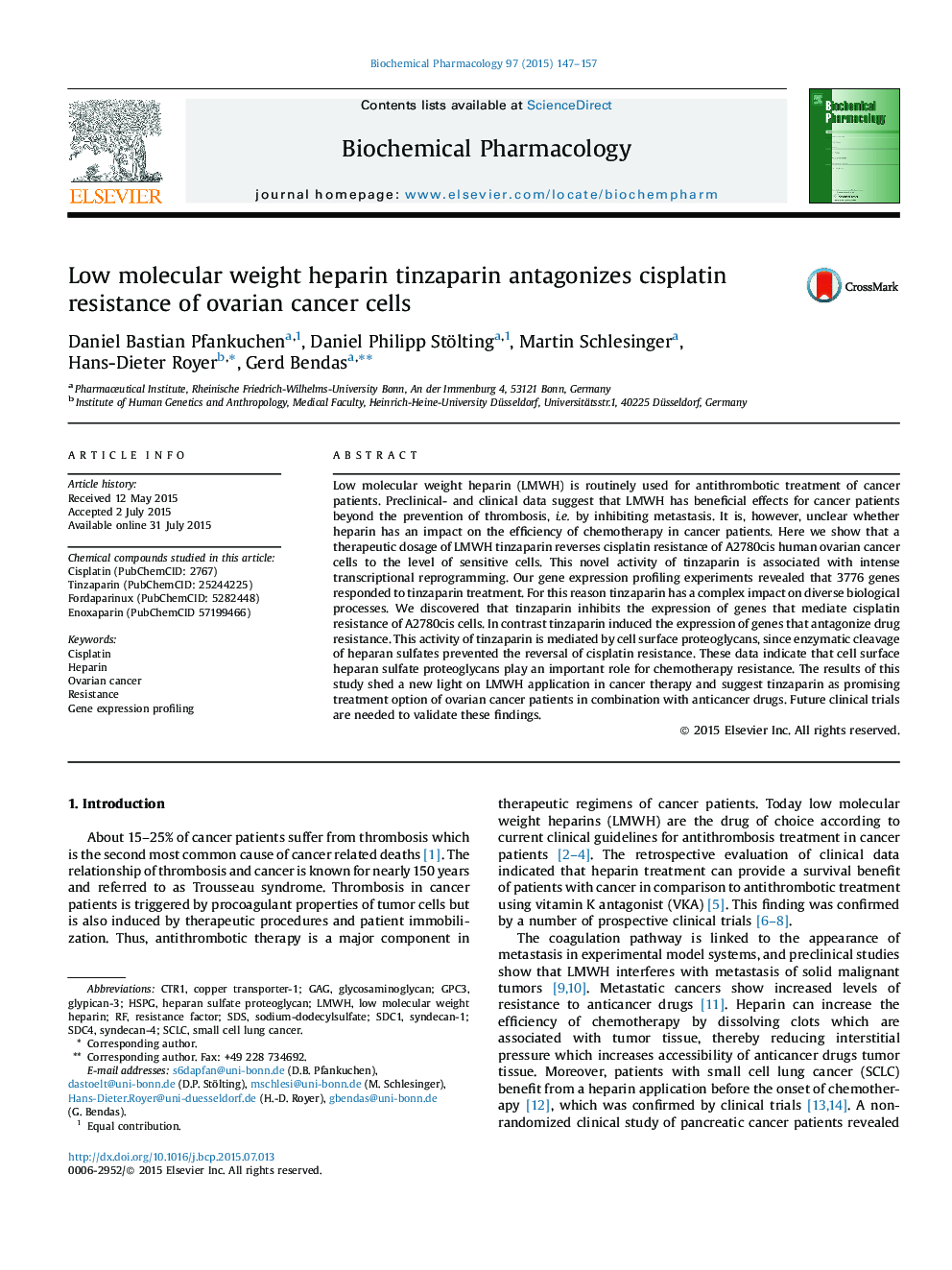| Article ID | Journal | Published Year | Pages | File Type |
|---|---|---|---|---|
| 2511973 | Biochemical Pharmacology | 2015 | 11 Pages |
Low molecular weight heparin (LMWH) is routinely used for antithrombotic treatment of cancer patients. Preclinical- and clinical data suggest that LMWH has beneficial effects for cancer patients beyond the prevention of thrombosis, i.e. by inhibiting metastasis. It is, however, unclear whether heparin has an impact on the efficiency of chemotherapy in cancer patients. Here we show that a therapeutic dosage of LMWH tinzaparin reverses cisplatin resistance of A2780cis human ovarian cancer cells to the level of sensitive cells. This novel activity of tinzaparin is associated with intense transcriptional reprogramming. Our gene expression profiling experiments revealed that 3776 genes responded to tinzaparin treatment. For this reason tinzaparin has a complex impact on diverse biological processes. We discovered that tinzaparin inhibits the expression of genes that mediate cisplatin resistance of A2780cis cells. In contrast tinzaparin induced the expression of genes that antagonize drug resistance. This activity of tinzaparin is mediated by cell surface proteoglycans, since enzymatic cleavage of heparan sulfates prevented the reversal of cisplatin resistance. These data indicate that cell surface heparan sulfate proteoglycans play an important role for chemotherapy resistance. The results of this study shed a new light on LMWH application in cancer therapy and suggest tinzaparin as promising treatment option of ovarian cancer patients in combination with anticancer drugs. Future clinical trials are needed to validate these findings.
Graphical abstractTinzaparin overcomes the proteoglycan-mediated cisplatin resistance in A2780cis cells by a transcriptional reprogramming, thus supporting cisplatin induced apoptosis.Figure optionsDownload full-size imageDownload as PowerPoint slide
